FRONTRUNNER Meets Delta Spirit
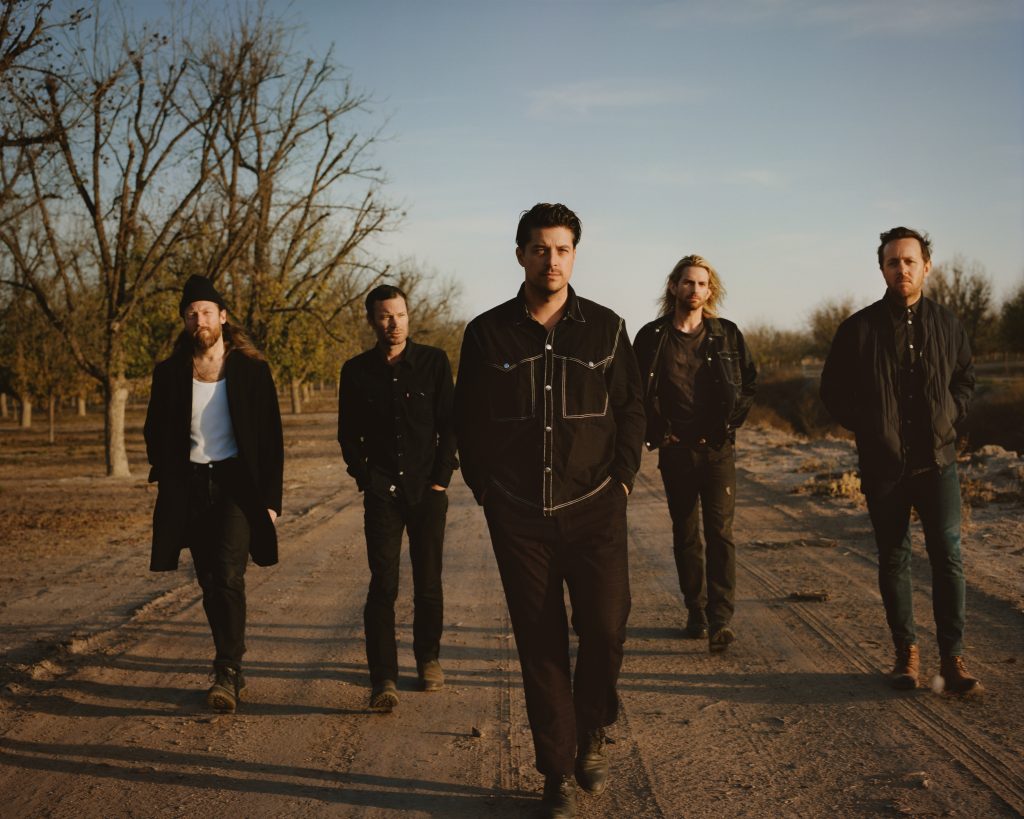
A little bit rock, a little bit indie, lots and lots of smashed expectations. Sixteen years, five albums and countless successes later, California-based band Delta Spirit charges forward with a new record, What Is There (2020), and still led by lead vocalist/guitarist Matt Vasquez. It began in 2005. Jon Jameson and Brandon Young had joined together, having played in different cover bands, and soon after recruited Vasquez. Kelly Winrich offered his home studio to record the band’s first EP I Think I Found It (2006), and was officially inducted that year. The quartet wasn’t rounded out until 2010, when Will McClaren came onboard.
Their music has been heard not only on American late-night television, but on hit series such as Sons of Anarchy, Friday Night Lights, Grey’s Anatomy and American Dad! They’ve appeared on the stages at Coachella and Lollapalooza, and announced their new tour, Not Dead Yet, just months ago.
FRONTRUNNER speaks to Vasquez about his own beginnings and the band’s latest release.

Tell me about your beginnings. I read somewhere that you spent some time busking and playing on the street when you were younger.
Busking, yes, definitely. I think my personality and the activity meshed really well together [Laughs], because it’s full of the right cocktail of insecurity, extroversion, insecurity and extroversion. It will definitely push you to try to get complete strangers to give you some sensation of love. Once you get addicted to that, you definitely continue to do it. In high school, my family were the poor people in a very rich area. We lived in Dana Point, California, south of Laguna Beach in South Orange County. We could walk to the beach, which is so awesome, but we had five people cramped in this two-bedroom apartment. My parents slept in the kitchen, my brother and I shared a room, and my sister had her own room. There was a tunnel on the way down to the Salt Creek Beach, it had just the best reverb and I used to go down there and sing my songs. At the time, I’d moved back from Texas because I had done a bunch of acid when I was fifteen. That is part of what spurred my family to move to southern California. I was only allowed to go to church. Actually, church really got me out of a lot of trouble. Singing a Christian song, busking and evangelism – that definitely played a huge role in music, for me.
Did you learn things through your church that you’ve been able to bring towards your process?
Yeah, once I started playing in churches, I found myself in some trouble with that stuff, like going to extremely evangelical kind of places. But with that environment, it was trying to find this holy place or moment. Something special, you know, within the musicians and within the room; reading a room and kind of feeling where to take it. Also communication – the arc of a song. In terms of jamming on a simple idea, here are three chords and the band can feel it get louder, it knows how to get quiet and sit in the quiet thing. Give people some space to be introspective. Those lessons paid dividends in my life, for sure. A lot of the songs were written from a really honest place. Coming into agnosticism, you know, there’s a lot more than just boy-meets-girl songs, but more about life and its meaning and the meaning that we choose.
There’s a political bent in your songs from the very beginning. I get the feeling that they were protest songs, reimagined.
In 2005 when Delta Spirit was starting, there was a lot going on. George W. Bush was President. We came of age during 9/11, so a lot of that fell into our laps. We were saying, “Why are we going to Iraq when the Taliban is in Afghanistan?” It seems like such a simple, basic time compared to the age and divisive place we’re in today. Being 18, having that self-importance and real opinion. That’s what I felt when I wrote those songs. The ones I still play.
It’s fun to see bands I love loving your work and your collaborations with them. You were in the supergroup Middle Brother with Taylor Goldsmith (from Dawes) and John McCauley (from Deertick and Diamond Rugs). It sounds like you’re comfortable being in a lot of different rooms with different influences.
Yeah. I think whatever feels like a safe environment to create music, it gets made. With the Middle Brother thing, that was totally on a whim. We brought Dawes on their first US tour to open for us and we had become pretty close friends. John had invited Taylor, and a couple of different elements brought me out there to that project. Then we made a band! Same thing with the band Glorietta that I started with Adrian Quesada. We took our acquaintanceship into friendship because I sold him an amp on Craigslist. Adrian plays guitar in a band called Black Pumas and Grupo Fantasma. He, David, and I were like, “Let’s do a record in Santa Fe,” and that’s the whole Glorietta story. We included Noah Gundersen, Kelsey Wilson, and Jason Blum. Then there’s Nathaniel (Rateliffe) and all his dudes, The Night Sweats. Those types of friend projects are definitely necessary for me, because I need the inspiration to come at it and need things to remain fresh. Stagnation is not a really healthy option for creative people.

Photo credit: Brendan Shanley
Would you be able to put in a couple of words what those relationships were like, or was there anything in particular that you picked up?
I’m genuine fans of their music and I feel really like we’ve, to an extent, let each other in on how we like our stories. That’s a total privilege to do that, and to have that thing. Something that’s ours. There’s a mutual respect that’s different than it was, somebody that you’re just like bowled over because they’re famous and you’re just happy to be in the room. It’s more like a friend. The only intention was to make a song we liked, or to make your friend’s song that you already like, that you think’s really good – just not getting in the way of that. Kind of egoless. Those friendships matter way more than the predatory friendship-type stuff. The business is full of monetized relationships. I guess what I’m getting at is when you involve that, it takes a lot of trust on both sides of the street to let God in and let some art happen. It just takes special people. I don’t know exactly what that is, but I know that person cares about me, I care about them, and that it’s able to exist.
I totally get that. That’s probably really hard to make sense of, but it definitely feels real. I’m not sure that that’s clear to anyone when they’re 18.
No, definitely, not. I wasn’t 18. I was in my 20s, but I was also still stupid and immature, at the beginning point of that whole thing. With Delta Spirit in the early songs, there is this sound of discovery and the fun is, like, the sound of those moments is the actual chasing of new sounds. I think those are really cool. There’s no defined role.
It’s also interesting that it feels like the reward really is the creation, in a way. All the nonsense: the monetization, the fame, all the other stuff is completely irrelevant if you have the creative part of it.
For all the crazy shit Quincy Jones said two years ago, one thing he said was that he wanted to ring true in that. The second you start thinking about money in the studio, God leaves the room. He said some crazy stuff, but he’s so right about this part and I love him for it. That’s definitely in the attitude. I think with our band and our journey, it started in that vibe where we borrowed a friend’s cabin to record our first record. We were dumpster diving and buying Trader Joe’s two buck Chuck, we made a record in this funny cabin (called “Delta Spirit”), progressively making these records that sounded better and better.
We would step up the production part, but I think our relationship, the fun and the kind of excitement about what we were doing, the passion, our psychic connection, it wasn’t the same after our last record. Part of that was just, I think, exhaustion. When you only live for each other, then you start to live for other people because you fall in love with them or you have a different interest, or maybe you’re getting hip to some other music that the other guys aren’t at just yet. You make friends, or move someplace. All of these factors went into the shrinking of the common part of our Venn diagram of influence, and our ability to collaborate.
We stepped away and, very quickly, our friendship came back. From there, it was time to grow as individuals. When we came back in, this record happened and it’s awesome. I’m so proud of everybody. So it has the feeling of fun for me. A lot of the parts that were epiphanies were captured along the way and put together into this record, that ends up sounding really great because it was engineered better than any other thing we’ve done.
I can’t go without saying that “What is There?” is a song that ties in a little bit more with what we’ve been talking about. It feels more introspective.
Yeah, it’s actually acrostic. Each verse spells out a member of the band’s name. It begins with one of the letters, like an acronym. It’s about this sentimental experience; that song got written pretty quickly after we realized that this was going to happen again. It was pretty rad. It’s both a question and a declaration. What we are stepping into is kind of an unknown, like, is this going to be good? Is this going to be what we hope it is? In the same sense it’s giving, giving ourselves a little grace for the incredible, awesome career that we’ve had as a band, the things that we’ve accomplished and done together, just the same. If you told me that, I would have played a shit-ton of late night shows and toured the world over and over and over again and make a living out of it. Still, the people I’ve known for playing music loudly in front of others for half of my life are the same folks. That’s insane, you know. Those are the long songs I wrote to the band. “It Ain’t Easy” and “How Bout It”, those are about the bets we make in life.

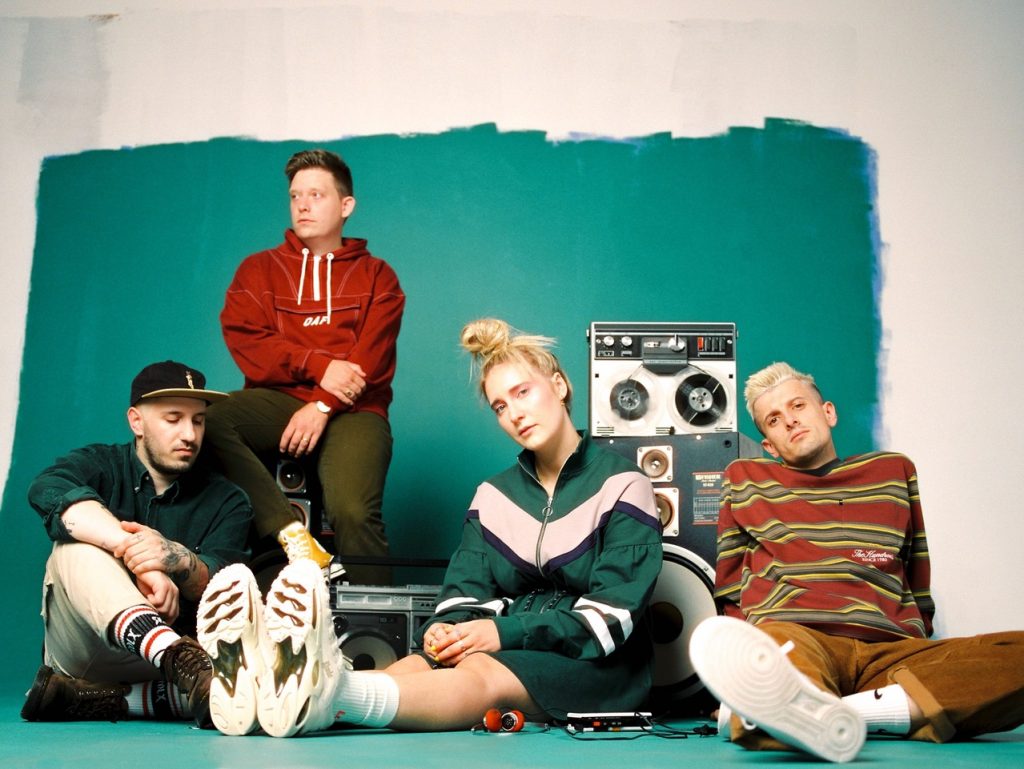
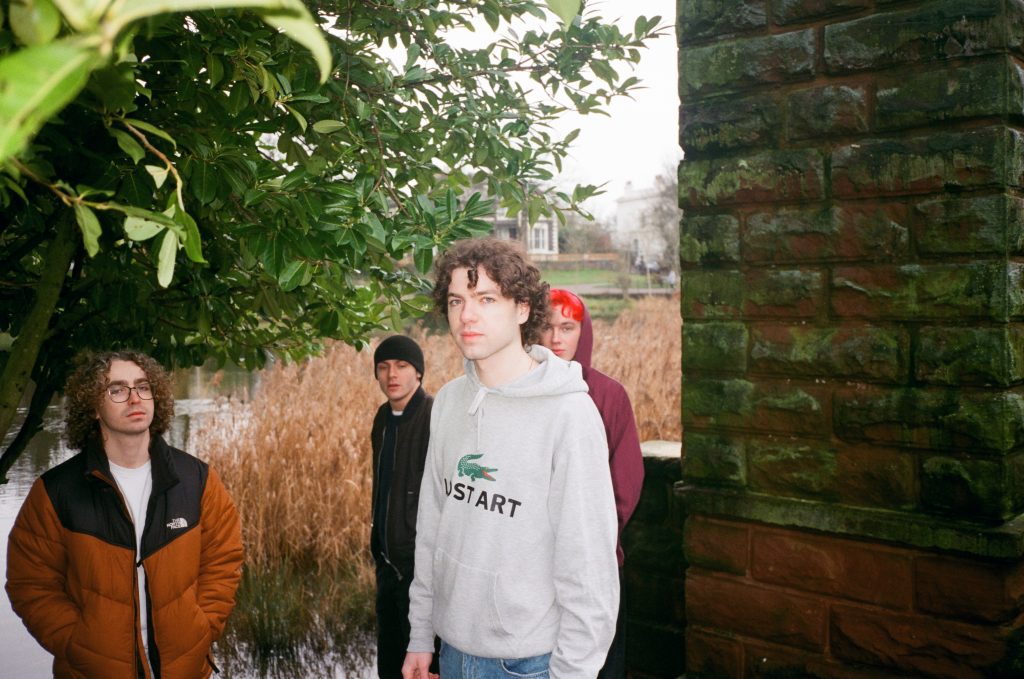
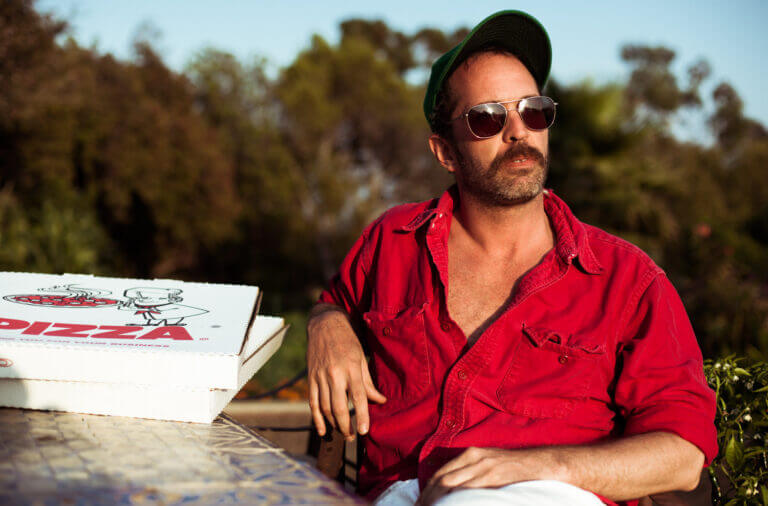
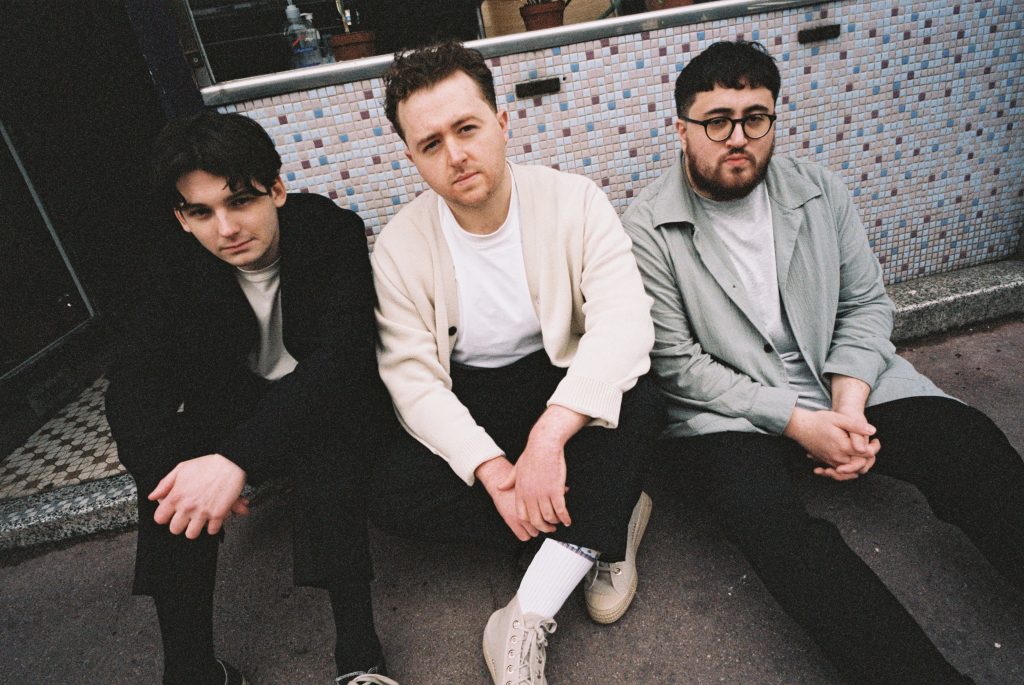
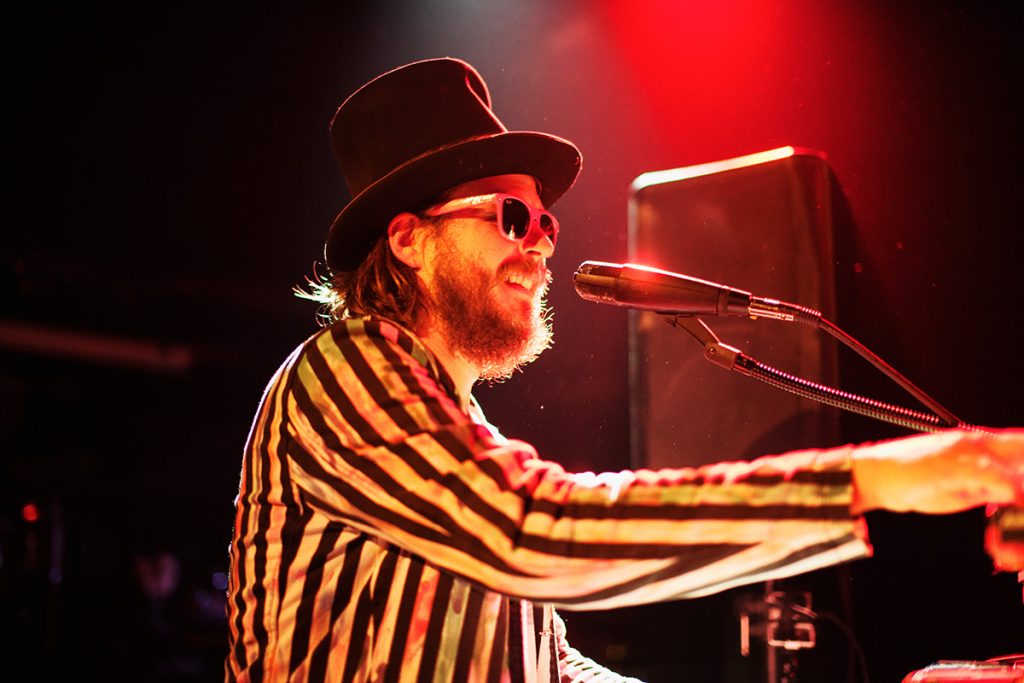
Responses